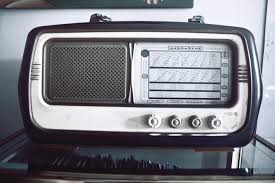
For an advertising medium that began in the 1920’s, radio has shown itself to be a resilient way to deliver brand messaging. But with the rise of digital advertising, many are questioning radio’s continued longevity. Web marketers will tell you it’s dying a slow death while radio marketers will tell you it’s never been more relevant.
The truth? Well, it’s somewhere in the middle.
Radio is still an excellent medium for a number of reasons, most notably that the vast majority of Americans—upwards of 90%—still listen to the radio. Radio is everywhere; in the car, in the background at stores and even on your phone. And that brings up a big selling point for radio, it’s made the transition from the big hunk of furniture your grandparents had to being something you can carry in an app, right on your phone. Streaming radio services such as Pandora and Spotify are still radio and they still rely on advertising revenue.
Radio is also one of the rare mediums that allows your spot total exclusivity. For example, take newspaper ads. Your spot is almost always competing not only with other ads, but with the newspaper’s actual content. Even more “modern” media, such as digital advertising, place your ad in conflict with other ads, and the actual web content you’re trying to read. Radio, however, stops its programming to allow your ad its time.
Finally, radio is one of the rare forms of media that gives your target a real sense of intimacy—the human voice can be far more personal and immediate than printed and digital ads. A clear example of this is using influencers in your spots, such as local DJ’s. DJ’s build a following among their listeners, developing loyal station devotees. Having DJ’s do live reads of your ad is one of the oldest forms of influencer marketing out there.
But radio has its share of problems, and DJ’s are actually a good place to start. As radio stations downsize and become more automated, the intimacy and community building of DJ’s is starting to fade.
We’re also having a hard time understanding what radio will mean in the future. Will we eventually dump AM/FM and be simply digital? Will radio personalities—from Howard Stern on down—continue their exodus from radio in the face of corporate consolidation? That lack of a clear direction forward makes it difficult to forecast how advertising will work in radio. One thing is for certain: Spending on radio advertising has, for the most part, stagnated and started to drop.
In the end, radio is still competitive with streaming media as the way to find new music and to tune in to talk shows. And for 6AM Marketing, it’s still a great way to reach particular demographics, especially those who grew up with radio.
So, while it’s certainly been knocked off its pedestal, it’s still a very wise, strategic medium for the right clients.